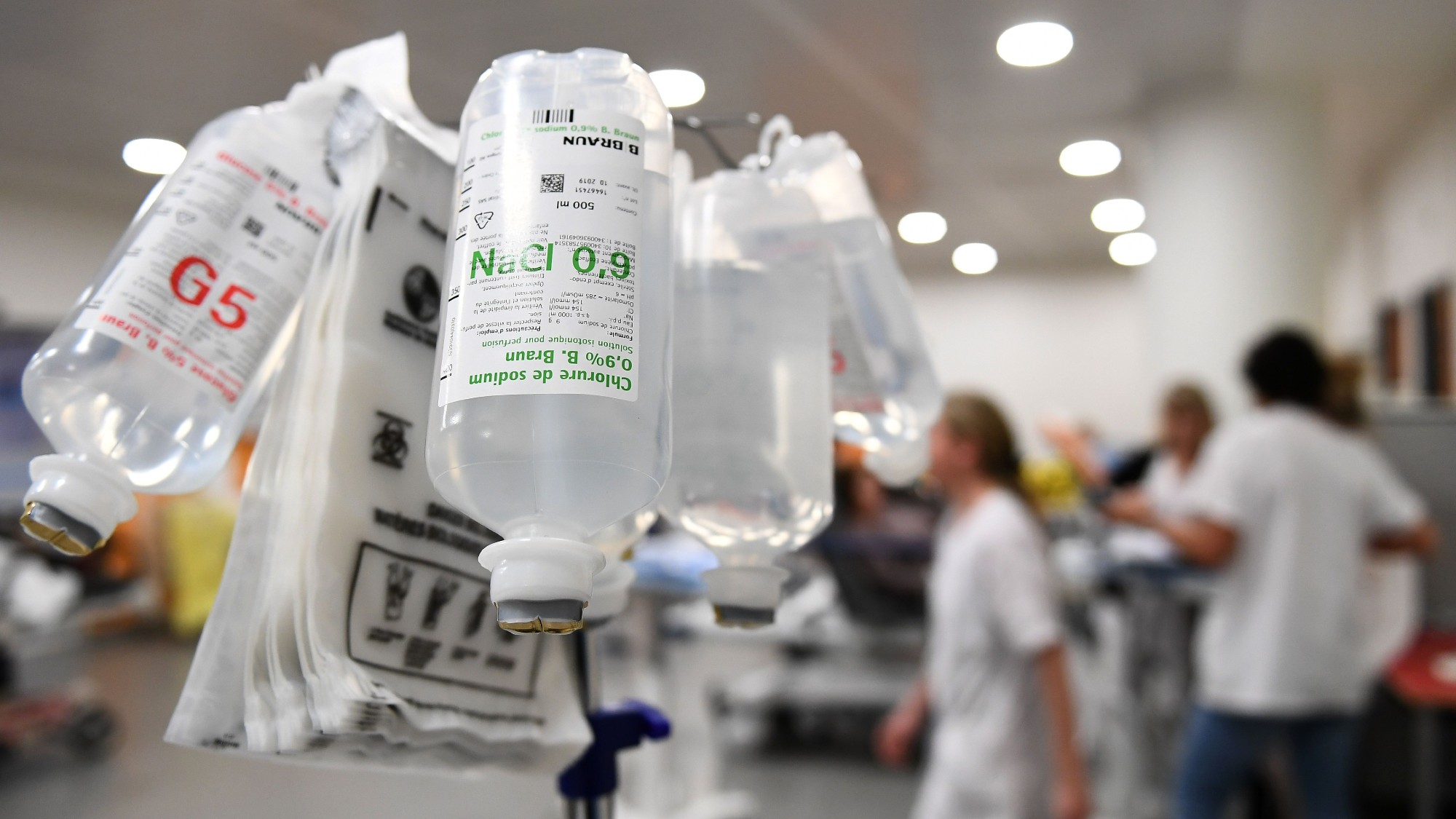Australia's hospitals sound alarm on saline shortage
A mysterious rise in demand has focused attention on a weakness in Australia's healthcare

A free daily email with the biggest news stories of the day – and the best features from TheWeek.com
You are now subscribed
Your newsletter sign-up was successful
The Australian Medical Association has warned that the health system could "come to a grinding halt" amid a global unprecedented shortage of intravenous fluid. The association's president, Professor Steve Robson, said that shortages as early as next week "could have bigger implications than the Covid restrictions", said The Guardian.
Australia's medicines regulator, the Therapeutic Goods Association (TGA), has said that even if the worst shortages can be avoided, supplies of IV fluid products are expected to be restricted throughout 2024, because of global manufacturing issues and an unexpected increase in demand.
'Very concerning'
IV fluids contain a saline solution – salt in water at a concentration similar to that of the plasma in the human body. They are made under "highly specialised manufacturing conditions", said The Guardian, and used to administer medications directly into the bloodstream, including chemotherapy and anaesthesia.
The Week
Escape your echo chamber. Get the facts behind the news, plus analysis from multiple perspectives.

Sign up for The Week's Free Newsletters
From our morning news briefing to a weekly Good News Newsletter, get the best of The Week delivered directly to your inbox.
From our morning news briefing to a weekly Good News Newsletter, get the best of The Week delivered directly to your inbox.
The fluids can also be "crucial medicine in themselves" to support kidney function in patients who are dehydrated and keeping the blood pressure up of patients with sepsis or blood loss.
Saline is "one of the go-to fluids" and "an essential part of care" in the health system, said Ged Kearney, a former nurse who is now Australia's Federal Assistant Minister for Health.
Saline is also crucial for veterinary care because animals undergoing surgery also require these fluids. The president of the Australian Veterinary Association, Dr Sally Colgan, told ABC News that the shortage was "very concerning" for vets, who are already facing supply issues in clinics.
The TGA has approved the importation of alternative, overseas-registered saline fluids to address the shortage and is considering other steps. The ambulance service has banned the use of saline in training scenarios and advised paramedics to use the solution "judiciously" to minimise wastage.
A free daily email with the biggest news stories of the day – and the best features from TheWeek.com
There is also debate over just how unexpected the problem is, said ABC News. A spokesperson for the Tasmanian Department of Health told the outlet that it raised concerns with the TGA more than 18 months ago.
'Lives at risk'
Baxter Healthcare, which supplies medical and surgical products, including IV fluid, told the outlet there was "increased customer demand" and limited supply due to "outages from other suppliers" but did not comment on the source of the increased demand, or where the outages were occurring in the supply chain.
Royal Australasian College of Physicians president Professor Jennifer Martin said global manufacturing issues were felt more acutely in Australia and New Zealand because the nations are "the end of the supply chain for a lot of these agents and we don't have a backup manufacturing capability".
She noted that "there are other ways to deliver medication besides diluting them in a bag of saline – such as intravenous injection and oral intake", but IV is safer and more efficient because it allows hospital staff to get on with other tasks.
So although there are "workarounds" to address the current shortage, wrote Shoohb Alassadi and Nial Wheate on The Conversation, Australia is likely to face ongoing supply issues "for any medicines that we rely on overseas manufacturers to produce", and shortages like this "put Australian lives at risk".
Chas Newkey-Burden has been part of The Week Digital team for more than a decade and a journalist for 25 years, starting out on the irreverent football weekly 90 Minutes, before moving to lifestyle magazines Loaded and Attitude. He was a columnist for The Big Issue and landed a world exclusive with David Beckham that became the weekly magazine’s bestselling issue. He now writes regularly for The Guardian, The Telegraph, The Independent, Metro, FourFourTwo and the i new site. He is also the author of a number of non-fiction books.